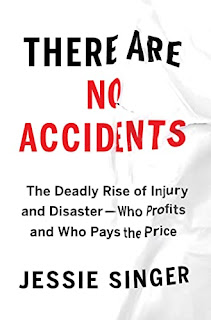from There Are No Accidents: The Deadly Rise of Injury and Disaster―Who Profits and Who Pays the Price by Jessie Singer:
In accidents, racecraft can come into play if we use race or ethnicity to explain unequal outcomes. Let’s look at one way this could work: Nationwide, Latino people are more likely than white people to be killed in bike accidents. In New York City, Latino people are also more likely to be ticketed for bicycling on the sidewalk. Knowing these facts, we could develop a racist stigma that expects Latino people in New York City to be risky and lawless cyclists. That stigma would reduce empathy for a Latino cyclist killed in a bike accident. As a result, police may enforce laws against people biking in Latino neighborhoos more strictly, and taxpayers, in general, could be less supportive of building bike infrastructure in these neighborhoods. If you believe the stigma, why would you want to give good things to lawless people? A racist New York City community board member made a similar argument in 2017, arguing to halt construction of bike lanes in the majority Latino immigrant neighborhood of Corona, Queens. “Once Trump removes all the illegals from Corona,” she said, “there’s won’t be anybody to ride bike lanes.”
You can see how this could create a vicious cycle: accidental death is more likely because of dangerous conditions, which are distributed across society in a racist way, and which are justified to remain dangerous by a racist interpretation of the cause of accidental death. The response to a white person killed in a bike accident, absent racecraft, might be more sympathetic, less focused on human error and more on dangerous conditions—leading to solutions for the actual problems.

No comments:
Post a Comment